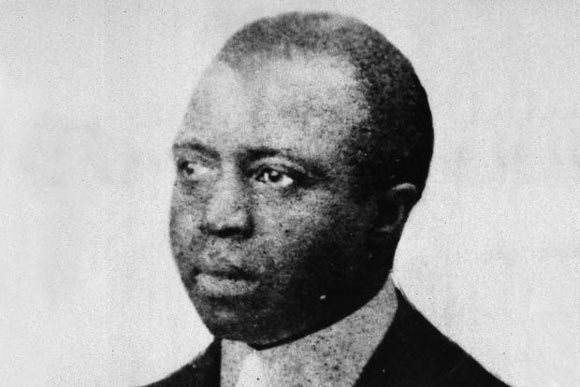
Scott Joplin was a legendary composer, music teacher and pianist, and is often referred to be the founder of ‘ragtime’ music. He was a strong proponent of jazz, and became increasingly interested in making music in the classical genre with a very distinguished rhythmic vibe, something that had never been done before. His musical career spanned close to two decades, often producing some of the most nourished and unique tracks in ragtime. Being well-acquainted with a number of different instruments such as the cornet, guitar, piano, banjo and the mandolin, Joplin was also equally fond of including his penetrable vocals in to his music. In a career that can arguably be labelled as short for his age, Joplin surprisingly managed to become one of the most respected classical musicians of all time.
Having been born in a family of former slave farmers, it was hard for young Joplin to imagine becoming a celebrated musician. However, it was not long before he picked up on the piano and became rather proficient at it, after attending lessons from a German-Jewish professor Julius Weiss. A music professor of respected status, Weiss was so impressed by Joplin’s skill behind the piano that he agreed to provide lessons free of charge until Joplin turned 16. Now on the cusp of making some of his own compositions, Joplin started off teaching the guitar and playing piano with a vocal quartet. Close to the early 1890s, Joplin increasingly envisaged the prospects of becoming a full-time troubadour, and as a result travelled around the United States performing for several low-scale bands. A stark peculiarity that often defines much of Joplin’s music years is his constant struggle with racism in America at the time. One of the first few encounters with racism and exclusion of colored people was at the Chicago World Fair, where he was not allowed to perform. Joplin, however, managed to play a few of his first compositions on the side lines, and thus gave birth to a whole new genre of music called Ragtime, that grew most popular amongst the black community there onwards. This theme of racial seclusion was always a troubling factor for Joplin, and one that he embraced in his music as a dominant voice of concern.
Joplin’s first exposure to publications and the wider music world came around the time he moved to Sedalia, Missouri in 1894. In this period, he managed to impress two businessmen in a local music club after performing some of his originals. This was the beginning of a successful run of top charting ragtime publications, starting off with the first two of Joplin’s songs called Please Say You Will, and A Picture of her Face. However, what Joplin is most popularly known for is his all-time success with the song Maple Leaf Rag, an 1899 piece originally for piano. The song featured some of the most riveting features of ragtime music, with jumpy bass lines, offbeat melodies and an unusually arranged rhythmic pattern. So widespread was the reception of this classic ragtime piece that it became a model for future songs in the genre. However, this was hardly the end of such a bestowed musician, who later went on to produce some truly magnificent works close to 1904, such as The Entertainer, March Majestic and The Ragtime Dance.
Scott Joplin is also known for some opera works, although his main focus had always been ragtime compositions. Known most famously for his innovative approach to a seemingly heartless music stage of the late 1890s, Joplin contributed significantly to much of what classical enthusiasts listen to these days.